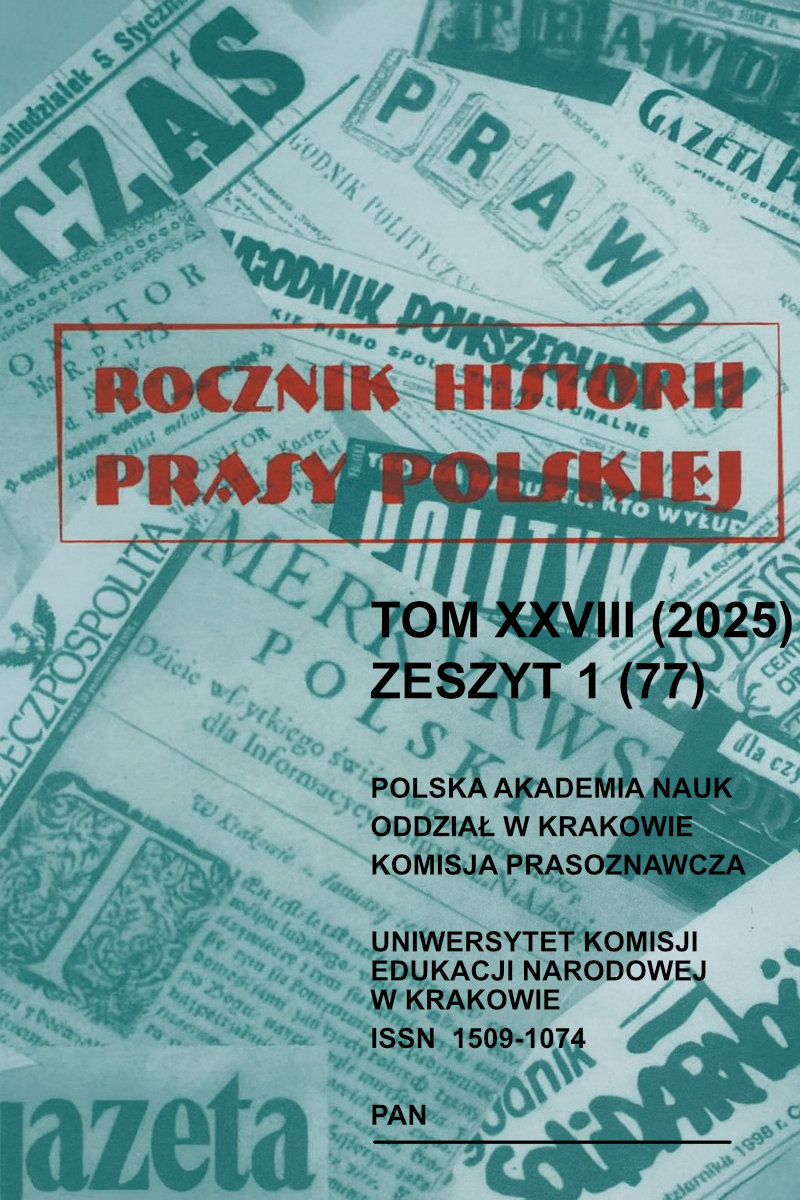The image of Kurt Schumacher in Polish post-war journalism, 1946–1951
Keywords:
History of Germany in the 20th century, Kurt Schumacher (1895–1952), politics and communist propaganda, Schumacher's image in post-war PolandAbstract
In German historiography and the German popular tradition Kurt Schumacher is seen as a man of character and a beacon of personal and political integrity. Arrested in 1933, he spent more than a decade in prisons and concen- tration camps. But neither harsh treatment nor torture could force him to renounce his anti-Nazi views. In the last weeks before the liberation of the Neuengamme camp network, the Gestapo put his name on a death list. He survived by going into hiding. As soon as the war was over, he joined the budding political life of the West Germany at the head of the SPD. He was a one of the most uncompromising opponents of any form of return of the members of the Nazi regime into social or political life. As he was a staunch enemy of all totalitarianisms, and made no exception for communism, he became the object of hatred of the communist leaders based in East Germany. They falsely accused of collaboration with the Gestapo and the SS, serving as a kapo and committing crimes in the concentration camps.
The same discourse of hate was adopted by the whole Eastern block. In Poland he was denounced as a new Hitler, or at least an heir of the Nazi ideological dreams, who allegedly hobnobbed with activists of the old regime. The truth of the matter is that Schumacher was firmly committed to the idea of German unity and the return of the territories beyond the Oder-Neisse line. As he had excellent relations with the Western allies and tried to bring them round to his point of view, to which Poland reacted with irritation, anger and fear. However, he was also a radical pacifist and certainly there was no danger of him supporting any violence. That aspect was left out of the communist discourse which created an image of Schumacher the war monger, bent on mobilizing the Germans to a new war with Poland.
In a society where the memory of German atrocities was alive and strong, it was easy not only to stir the emotions but also to instrumentalize them for the communists' own political ends.
References
Albrecht W., Kurt Schumacher. Ein Leben fur den demokratischen Sozialismus, Bonn 1989.
Andrzejewski M., Socjaldemokrata Kurt Schumacher. Z Chełmna do Hannoveru, Gdańsk 1995.
Brammer U., Ein streitbarer Demokrat, Kurt Schumacher, „IFDT, Information fur die Truppe” 2002.
Fikus S., Radiofonia w III Rzeszy. Studium ideowego zniewolenia, Katowice 2018.
Fikus S., Trudny spadek dysydentów III Rzeszy w Republice Federalnej Niemiec, Warszawa 2013.
Fischer I., Kurt Schumacher und Erich Ollenhauer 1946 bis 1963, Bonn 2021.
Grzybowski K., Ustrój Polski współczesnej 1944-1948, Kraków 1948.
Heine F., Dr. Kurt Schumacher. Ein demokratischer Sozialist europaischer Pragung, Got-tingen 1969.
Hyss L., Kurt Schumacher. Deutscher und Europaer, Munster-Wolbeck 2002.
Kamińska-Szmaj I., Agresja językowa w życiu publicznym, Wrocław 2007.
Kirst W.-D., Kurt Schumacher als Redner. Eine rhetorische Analyse, GieBen 1981.
Kochnowski R., Spór o Niemcy. Problem niemiecki w myśli politycznej Konrada Adenaue-ra i Kurta Schumachera w latach 1945-1952, Katowice 1999.
Levis E., Kurt Schumacher. Personlichkeit undpolitisches Verhalten, Wiesbaden 1967.
Merseburger P., Der schwierige Deutsche Kurt Schumacher, Stuttgart 1995.
Miller S., Die Behandlung des Widerstandesgegen den Nationalsozialismus in der SPD nach 1945, [w:] Das Unrechtregime. Internationale Forschung uber den Nationalsozia-lismus, U. Buttner (hrsg.), Hamburg 1986.
Scholz G., Kurt Schumacher, Dusseldorf 1988.
Downloads
Published
How to Cite
Issue
Section
License
Copyright (c) 2025 Yearbook of the History of Polish Press

This work is licensed under a Creative Commons Attribution 4.0 International License.

